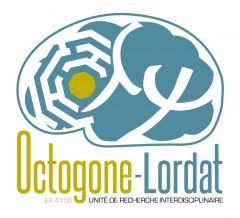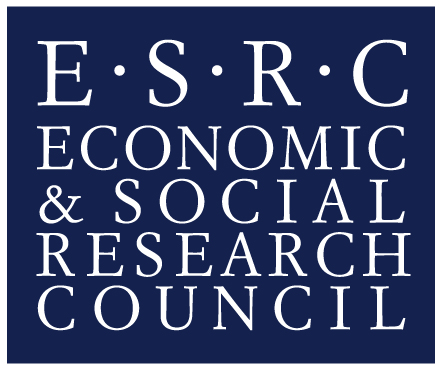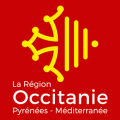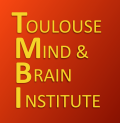(par ordre alphabétique du nom du premier auteur)
Présentations orales confirmées
Monolingual and multilingual learners of French. What are the effects of language background on spelling? (Marie Bontemps1, Phaedra Royle2 and Brigitte Stanké2 (1) Université Toulouse III-Paul Sabatier, (2) Université de Montréal)
Attrition and (incomplete) acquisition of Italian answering strategies (Irene Caloi1, Adriana Belletti2 and Cecilia Poletto1 3 (1) Goethe Universität Frankfurt, (2) CISCL-Dispoc-University of Siena, (3) Università degli Studi di Padova)
Cue strength and double marking for the disambiguation of thematic roles – Evidence from monolingual and early second language learners (Valentina Cristante1, Binanzer Anja2 and Bittner Andreas2 (1) Universität Osnabrück, (2) Westfälische Wilhelms-Universität Münster)
Time and Space in English and French discourse: implications for L2 acquisition (Annie-Claude Demagny – CNRS & Université Paris 8)
Null subjects in attrited, heritage and L2 Greek in Chile (Aretousa Giannakou and Ioanna Sitaridou – University of Cambridge)
Can French-English bilinguals process verb-particle constructions in a native-like manner? A self-paced reading study (Alexandre Herbay, Laura M. Gonnerman and Shari Baum – McGill University)
Do temporarily induced code-switching modes alternate executive performance in late sequential bilinguals? (Julia Hofweber, Theo Marinis and Jeanine Treffers-Daller – University of Reading)
Processing variability in L2 learning: insights from articulatory training (Natalia Kartushina and Clara Martin – Basque Center of Cognition, Brain and Language)
Age-related effects on language control and executive control: a behavioral-electrophysiological investigation (Emilie Massa1, Radouane El Yagoubi2 and Barbara Köpke1 (1) U.R.I. Octogone-Lordat EA4156, Université de Toulouse, (2) CLLE-LTC U.M.R 5263 Université de Toulouse)
Can translation lead to L1 attrition? Anaphora resolution by English>Croatian translators (Maja Milicevic1, Tihana Kras2 and Vladivoj Lisica2 (1) University of Belgrade, (2) University of Rijeka)
Processes and processing in modelling sound systems in contact (David Natvig – University of Wisconsin–Madison)
Trilingual effects at the microstructure and macrostructure levels in children’s narratives (Mihaela Pirvulescu1, Rena Helms-Park2 and Maria Petrescu1 (1) University of Toronto Mississauga, (2) University of Toronto Scarborough)
Language Processing in Bilinguals: Distinguishing Early Sequential from Simultaneous (Laura Sabourin, Christie Brien, Santa Vinerte, Michele Burkholder and Jean-Christophe Leclerc – University of Ottawa)
Implicit causality as a predictive cue in child L1 and adult L2 processing of German: Evidence from visual-world eyetracking (Judith Schlenter and Claudia Felser – Potsdam Research Institute for Multilingualism)
Cross-linguistic influence at the feature-level: Evidence from Dutch-German bilingual preschoolers (Antje Stoehr12, Titia Benders34, Janet van Hell5 and Paula Fikkert1 (1) Radboud University Nijmegen, (2) IMPRS for Language Sciences, (3) ARC Centre of Excellence in Cognition and its Disorders, (4) Macquarie University, (5) The Pennsylvania State University)
Subject position in heritage Spanish in the Netherlands and the US: a case for cross-linguistic influence (Brechje van Osch, Suzanne Aalberse, Aafke Hulk and Petra Sleeman – University of Amsterdam)
Transfer and derivational complexity in the wh-movement of heritage speakers and L2 learners: A bidirectional study (Nora Vosburg1, Michael Putnam1 and Holger Hopp2 (1) The Pennsylvania State University, (2) Technische Universitaet Braunschweig)
Posters confirmés
The case of semantic extension in Spanish (L1)-French (L2) late bilinguals: the influence of the L2 over the L1 (Lyanne Ahumada Ebratt and Barbara Köpke – URI Octogone-Lordat Université de Toulouse 2)
Influences translinguistiques dans les productions d’apprenants très avancés russophones du français (Tatiana Aleksandrova – Université Grenoble Alpes)
Complex Noun Phrases Processing in English by Native and L2 Speakers (Shanley Allen1, Leigh Fernandez1, Mary Elliott2, Neiloufar Family1, Kalliopi Katsika1, Maialen Iraola Azpiroz1, Juhani Järvikivi3 and Lianna Fortune3 – (1) University of Kaiserslautern, (2) Northeastern University, (3) University of Alberta
The benefits of bilingualism in inferential production during reading: the role of working memory (Xavier Aparicio – CHArt-UPEC EA 4004, Paris)
Bilingual Processing at Semantics-Morphosyntax interface: A study on the interaction of Animacy and Turkish DOM in Turkish-German heritage bilingual speakers (Elif Bamyacı – University of Cologne)
Cross-linguistic influence of L1 (French) and L1 (English) on L2 (Dutch) in sentences with the quantitative pronoun ER (Sanne Berends, Petra Sleeman, Aafke Hulk and Jeannette Schaeffer – University of Amsterdam)
Bimodal Bilingualism From French Sign Language to written word learning (Alienor Bouchaud and Hélène Giraudo – CLLE CNRS Université de Toulouse 2)
First language attrition at the interface among Chinese-English late bilinguals (on-going study) (Wenjia Cai – University of Edinburgh)
Language access and control in highly proficient bilinguals: a comparison between early and late bilinguals (Francesca Cortelazzo 1,2, Barbara Köpke 1, Vincent Lubrano2 & Xavier de Boissezon2 – (1) URI Octogone-Lordat Université de Toulouse 2, (2) ToNIC UMR 1214, Toulouse)
Frequency and working memory effects in incidental learning of a complex agreement pattern in L2 (Nadiia Denhovska – University of Central Lancashire)
Moving Past Feature Reassembly: the case of English definite article and L1 Mandarin speakers (Shuo Feng – University of Wisconsin-Madison)
The influence of L1 Reading Direction on L2 Perceptual Span Size (Leigh Fernandez1, Nicolette Pire2 and Shanley Allen1 – (1) University of Kaiserslautern, (2) Northeastern University)
The Role of Parafoveally-Viewed Frequency and Expectation Information in Native and L2 speakers of English (Leigh Fernandez1, Nicolette Pire2 and Shanley Allen1 – (1) University of Kaiserslautern, (2) Northeastern University)
Late second language learners recruit lexical-semantic mechanisms to process syntactic categories: An ERP study (Lauren Fromont1, Phaedra Royle1, Meagan Honigman2, Lisa Martignetti2 and Karsten Steinhauer2 – (1) Université de Montréal, (2) McGill University)
Bilingualism across the lifespan: Word order in Dutch-Spanish bilingual children and teenagers (Elisabet García González, Brechje van Osch, Suzanne Aalberse and Aafke Hulk – University of Amsterdam)
La compréhension d’expressions modales épistémiques en L2: l’influence de l’âge (Cyrille Granget1, Christine Cuet1, Marie-Ange Dat1, Delphine Guedat-Bittighoffer2 and Pascale El Haj3 – (1) Université de Nantes, (2) Université d’Angers, (3) SFL Paris)
‘The table’s leg’ or ‘the leg of the table’? Genitive structures in simultaneous and sequential bilingual children (Maki Kubota – University of Edinburgh)
Is foreign language attrition a special case of retrieval-induced forgetting? (Anne Mickan, Kristin Lemhöfer and James McQueen – Radboud University Nijmegen, Donders Institute for Brain, Cognition and Behavior)
Development of shared syntactic representations in second language learning: evidence from syntactic priming (Merel Muylle1, Sarah Bernolet2 and Robert Hartsuiker1 – (1) Ghent University, (2) Universiteit Antwerpen)
Constructing an experimental design to explore French Foreign Language Attrition in Greek learners: hypotheses and expectations (Kleopatra Mytara, Barbara Köpke and Olga Theophanous, URI Octogone-Lordat Université de Toulouse 2)
Evaluation et profil évolutif de l’aphasie de Broca chez les bilingues suivis en rééducation à Abidjan. (Guillaume N’Guessan, Serge Landry Seri and Zakaria Yago – UFHB, Université Alassane Ouattara de Bouaké, Université Félix Houphouêt Boigny)
Early Processes of Visual Word Recognition in Bilingualism (Karla Orihuela and Helene Giraudo – CLLE CNRS – Université de Toulouse 2)
Speakers learn to make a difference between German as first language and English as second language: Evidence against the development of shared syntactic representations (Sandra Pappert1, Sarah Menzel2, Michael Baumann1 and Thomas Pechmann2 – (1) Universität Bielefeld, (2) Universität Leipzig)
Evidence for acquisition-related effects in German subject-verb agreement? Differences between first and second language speakers (Sandra Pappert -Universität Bielefeld)
L’influence de la L1 dans l’acquisition de systèmes grammaticaux en L2 : l’acquisition du genre en FL2 par des apprenants germanophones, hispanophones et anglophones (Tatiana Pieters and Marie-Eve Michot – Vrije Universiteit Brussel)
Lexical processing in EFL bilinguals in a Mexican university: Results provided by a visual world task (Alma Luz Rodríguez-Lázaro, Natalia Arias-Trejo, Alina María Signoret-Dorcasberro and Armando Quetzalcóatl Angulo–Chavira – Universidad Nacional Autónoma de México)
The Interface Hypothesis and Korean Subject Markers (n)un and i/ka (Glenn Starr, Minhee Kim and Joy Kwon – University of Wisconsin – Madison)
L1 vs. L2 transfer: a study on cross-linguistic influence in the L3 acquisition of generics (Sascha Stollhans – University of Manchester)
Brain Activation, Connectivity and the L2 onset age effect (Hideyuki Taura – Ritsumeikan University, Japan)
Formulaic sequences in oral and written productions by users of French as a Second Language (Olga Theophanous and Marjolein Korving – URI Octogone-Lordat, Université de Toulouse 2)
Fluency Development of Bilingual French-Russian Children (Ekaterina Tiulkova, Vanda Marijanovic and Michel Billières – URI Octogone-Lordat, Université de Toulouse 2)
Cross-linguistic influence on the acquisition and processing of metaphorical expressions by Chinese learners and English (Mengying Xia – University of Cambridge)





